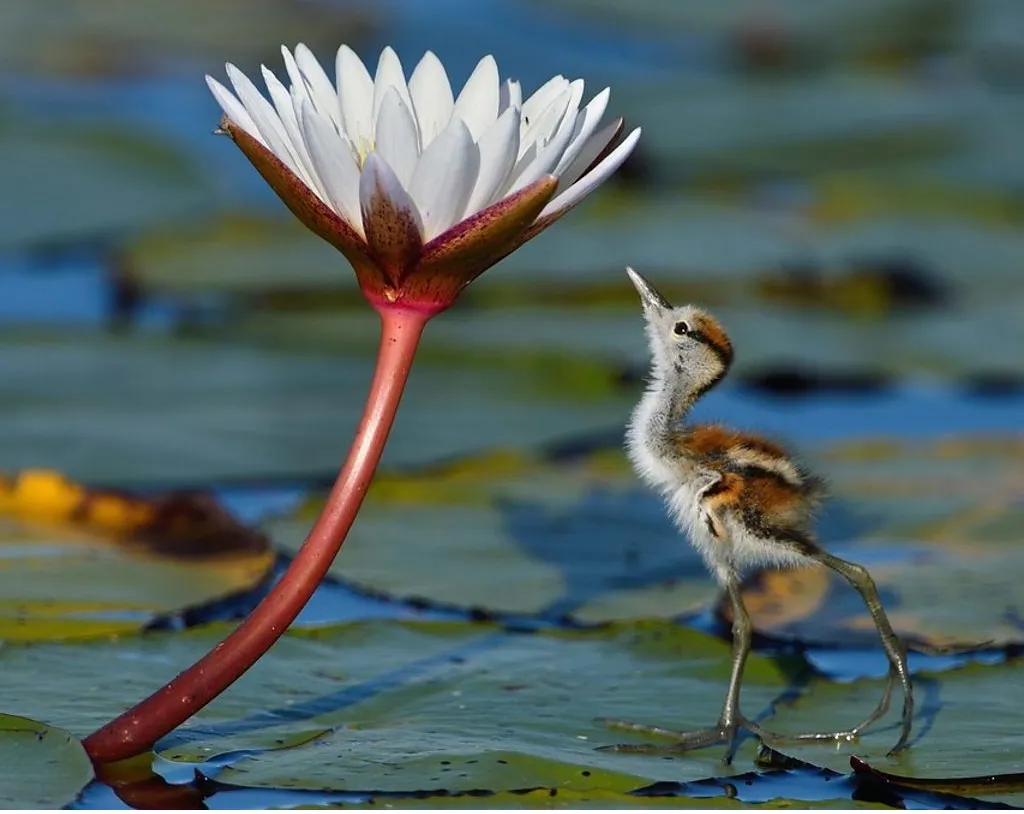Episode 4 of Sir David Attenborough's latest series Planet Earth III focusses on freshwater, the lifeblood of planet Earth, and the stage for extraordinary animal dramas.
Without doubt it's going to be an epic episode - buckle your seat belts as it's going to be emotional....
What can we expect from episode 4 of Planet Earth III?
In the heart of the Costa Rican rainforest, up to 10,000 gliding tree frogs descend from the canopy for the most important breeding event of the year. The world’s largest gathering of its kind will only last a day and, with males outnumbering females 9:1, competition is fierce.
- What wildlife can I see in Costa Rica?
- What wildlife can I see in Corcovado National Park, Costa Rica?
In Sri Lanka, as the dry season reaches its peak, the last remaining waterhole for miles around becomes a magnet for a different animal. Up to five metres long, mugger crocodiles lurk beneath the surface, waiting patiently for thirsty chital deer to approach the waterhole for a drink. Behaviour documented nowhere else, these crafty crocodiles have learned how to create traps...

Nestled amongst flowering water lilies, newly hatchedJacanas ‘lily-trotter’ chicks learn a most important lesson... how to walk on water. Their oversized feet - almost double the length of their body - make for a wobbly start but their dedicated father will do whatever it takes to keep them safe during the most vulnerable stage of their life.
This walking on water ability earned Jacanas a place on our weirdest birds in the world list.
Water can appear, vanish, or transform rapidly, so survival in these dynamic environments can be challenging and hinges on adaptation. In the Okavango Delta, the arrival of the great annual flood poses a significant challenge for a pack of five African painted dogs who must find an innovative way to master this changeable water world.
- Best David Attenborough books
- Sir David Attenborough: 5 magic moments on film
- Sir David Attenborough – key moments in his career so far
- Best David Attenborough documentaries to watch and stream: unmissable wildlife television at your fingertips
On the remote volcanic island of Bioko, in Equatorial Guinea, millions of goby fish prepare for a perilous journey. After months feeding out at sea, they return to freshwater to breed. The safest place to lay their eggs is at the very top of a 30 metre waterfall. For a fish only an inch long, this will require a bizarre physical transformation.
In a few rare places, like Lake Malawi, freshwater has remained a consistent presence for millions of years, resulting in a dazzling diversity of life. Here over 1,000 unique fish species thrive – more than any other lake on Earth – but surviving in these crowded waters demands ingenuity.* Meet the ‘play dead fish’, a master of deception that tricks other fish into thinking it’s dead.
Freshwater is vital to life, yet it is a finite resource. Of all the water on Earth, only 2.5% is fresh and most of that is locked up as ice or hidden deep below ground. In fact, less than 1% of freshwater is accessible.
Humans rely on freshwater for drinking, agriculture, irrigation, industry, and power. Throughout history we have devised extraordinary means to ensure it’s available, yet today, two thirds of our world’s great rivers no longer reach the sea. In the last 50 years, freshwater species have seen an 83% decline globally – faster than that of species in any other habitat.
One animal suffering on the front line is the Indus river dolphin in Pakistan. This species is the most endangered freshwater dolphin globally, with only around 2,000 individuals remaining. Every year, these dolphins get trapped in the network of irrigation canals, which form part of the vast ‘Indus Basin irrigation system’ – the largest such system on Earth. As water levels drop due to agricultural demands, the dolphins become stranded in ever shrinking pools. Their only hope for survival depends on the efforts of a dedicated rescue team, working to return them to the river before it’s too late.
What species appear in episode 4 of Planet Earth III
- Cenote pre-title: Yucatán Peninsula, Mexico
- Gliding tree frogs: Osa Peninsula, Costa Rica
- Mugger crocodiles hunting chital deer: Yala National Park, Sri Lanka
- African jacana: Chobe River, Namibia
- Wild dogs hunting lechwe: Okavango Delta, Botswana
- Cichlid, or ‘play dead fish’: Lake Malawi, Malawi
- Goby fish: Bioko, Equatorial Guinea
- Indus river dolphin: Sukkur region, Pakistan